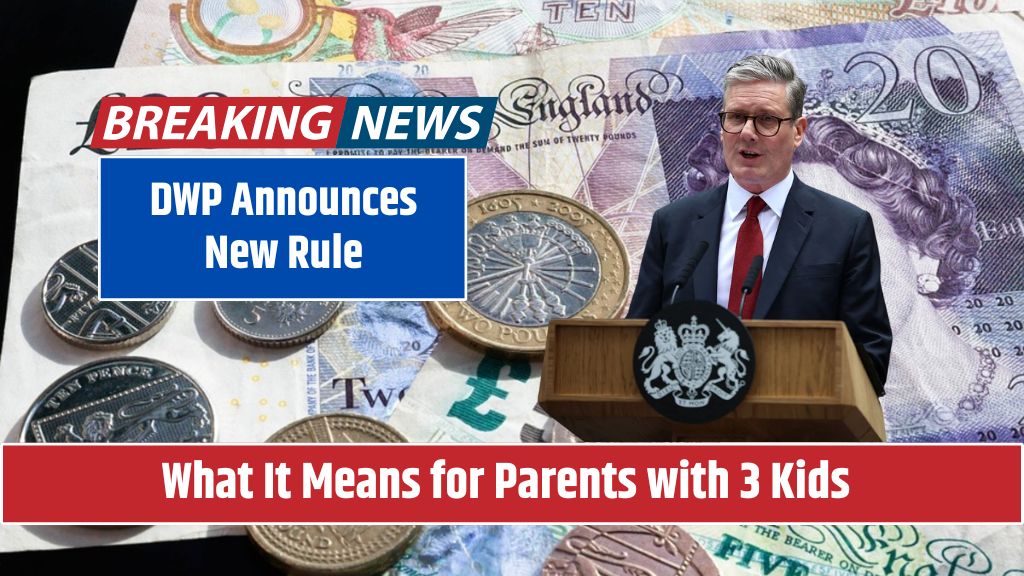The UK government’s two-child benefit limit has been a controversial policy since its introduction in 2017. Critics argue that it worsens child poverty, and now, a new report from the Resolution Foundation suggests that moving to a three-child limit could reduce child poverty by 320,000 by the end of this Parliament. However, the report insists that scrapping the two-child limit entirely is the only way to implement a credible poverty reduction strategy.
Current State of Child Poverty in the UK
According to projections, child poverty in the UK is expected to hit a record high of 4.6 million children by the end of this Parliament. The Resolution Foundation, a leading think tank, argues that government policies, including benefit caps and welfare cuts, have significantly contributed to this increase.
The two-child limit policy, first announced in 2015 by the Conservative government and implemented in 2017, restricts child tax credits and universal credit payments to the first two children in most households. This has led to growing financial strain on larger families, pushing more children into poverty.
The Case for a Three-Child Benefit Limit
The Resolution Foundation has suggested that moving from a two-child limit to a three-child limit, alongside scrapping the benefit cap, could help reduce child poverty. According to their estimates:
- Cost: This policy change would cost around £3.2 billion by 2029-30.
- Impact: It could reduce child poverty by 320,000 children by the end of this Parliament.
While this approach would be better than the current system, researchers argue that a needs-based social security system is the best solution, meaning financial support should be given based on actual need rather than an arbitrary cap.
Why Experts Want the Two-Child Limit Scrapped Entirely
Despite the potential benefits of a three-child limit, many experts and campaigners believe that removing the two-child cap altogether is necessary for a fair and effective poverty reduction strategy. The Resolution Foundation estimates that:
- Fully scrapping the two-child limit and benefit cap would cost approximately £4.5 billion by 2029-30.
- Including additional measures, such as extending free school meals and linking local housing allowance to rent, would cost around £9 billion but could lift 740,000 children out of poverty by 2029-30.
The think tank warns that failing to take action could leave the government facing a record rise in child poverty, with an estimated 33% of children (4.6 million) affected by 2029-30.
Government’s Response and Future Outlook
Prime Minister Sir Keir Starmer has previously expressed a desire to remove the two-child limit but insists that the government cannot afford it at the moment. His administration has instead focused on economic growth as a long-term solution to poverty.
The upcoming Spending Review could play a crucial role in shaping the future of child welfare policies. Researchers argue that a well-structured poverty strategy could lift up to 900,000 children out of poverty by the end of the decade.
The two-child benefit limit remains a significant factor in rising child poverty levels in the UK. While moving to a three-child limit could provide some relief, experts believe it is not enough. To genuinely tackle child poverty, policymakers must consider scrapping the two-child limit entirely, increasing support for low-income families, and ensuring financial aid aligns with actual needs. The government now faces a critical decision—whether to invest in meaningful change or risk an embarrassing legacy of rising child poverty.
Source: Link
FAQ’s
What is the UK’s two-child benefit limit?
The two-child benefit limit is a policy that restricts child tax credits and universal credit payments to the first two children in most households. It was introduced in 2017 to reduce government welfare spending.
How does the two-child limit impact child poverty?
The two-child limit has been linked to increasing child poverty rates. Experts estimate that 4.6 million children could be in poverty by 2029-30 due to welfare cuts.
What is the proposed three-child benefit limit?
A three-child benefit limit would allow benefits for up to three children per household. Experts believe this could reduce child poverty by 320,000, but they argue that removing the cap entirely would be more effective.
How much would scrapping the two-child limit cost?
Scrapping the two-child limit and benefit cap would cost around £4.5 billion by 2029-30. Additional measures, like extending free school meals, would raise the total cost to £9 billion but could lift 740,000 children out of poverty.
Will the UK government remove the two-child limit?
Prime Minister Keir Starmer has expressed interest in scrapping the two-child limit but insists the government cannot afford to do so at the moment. The policy remains a topic of debate.
